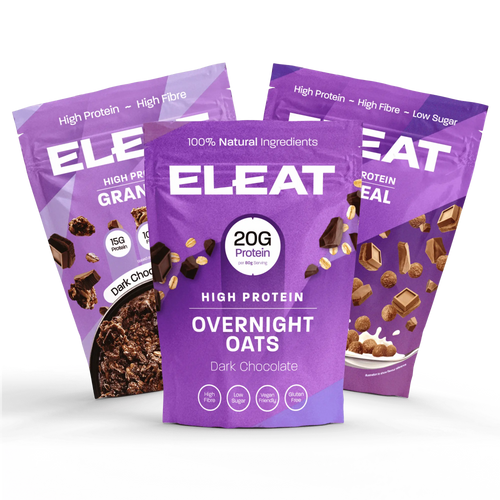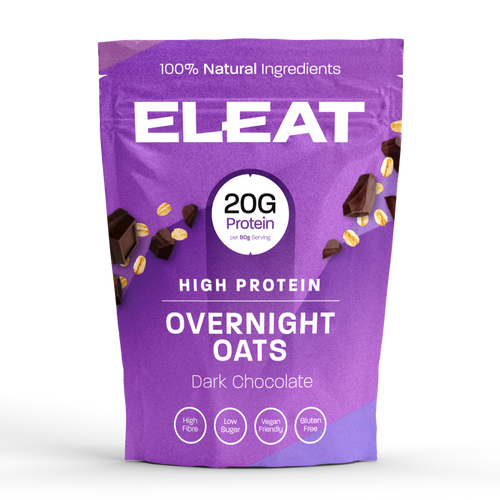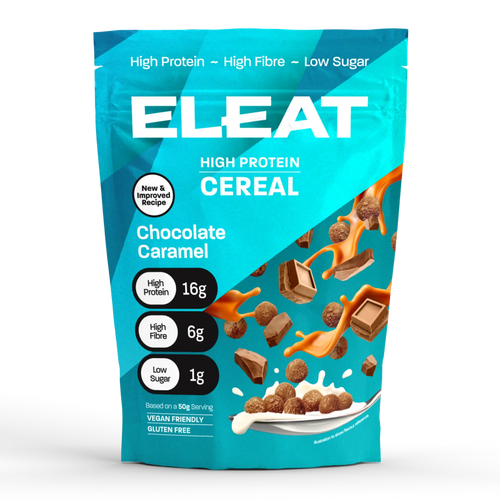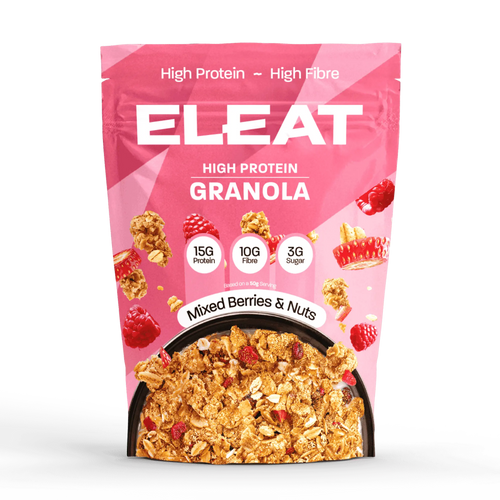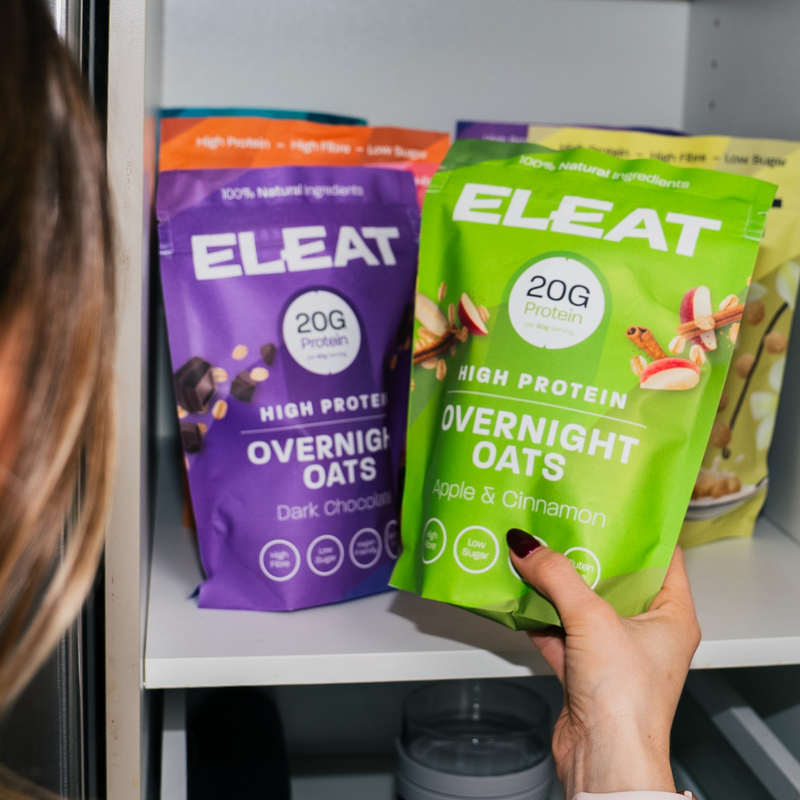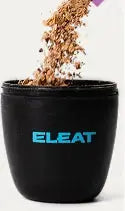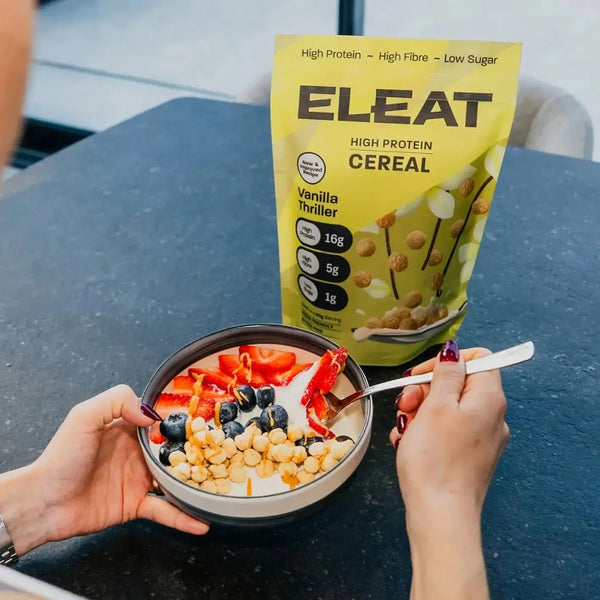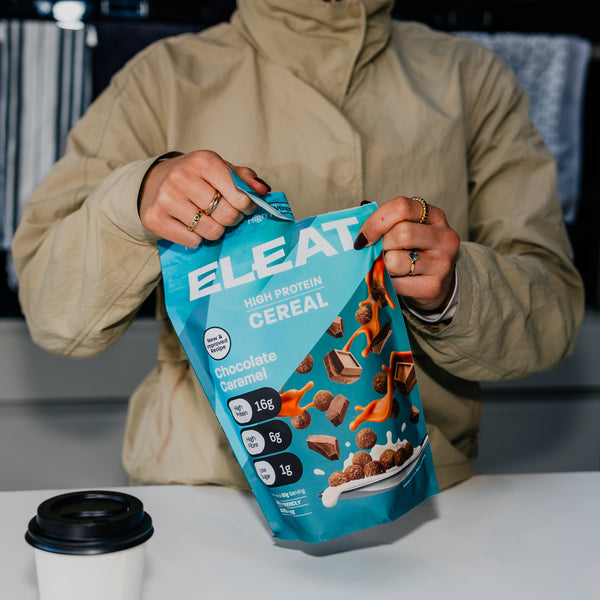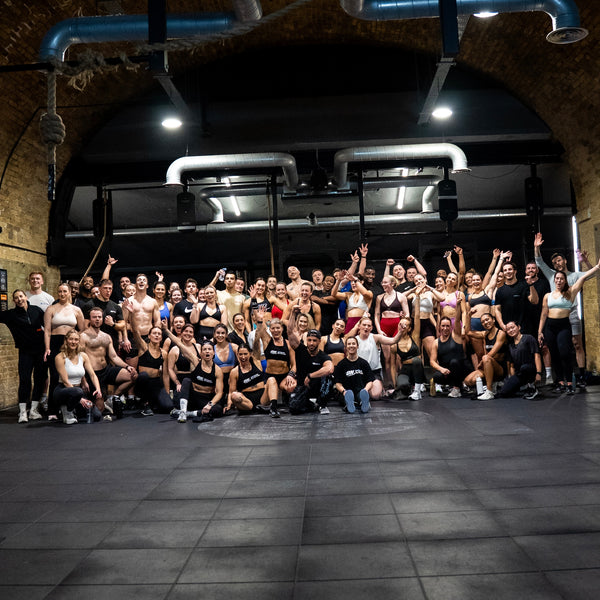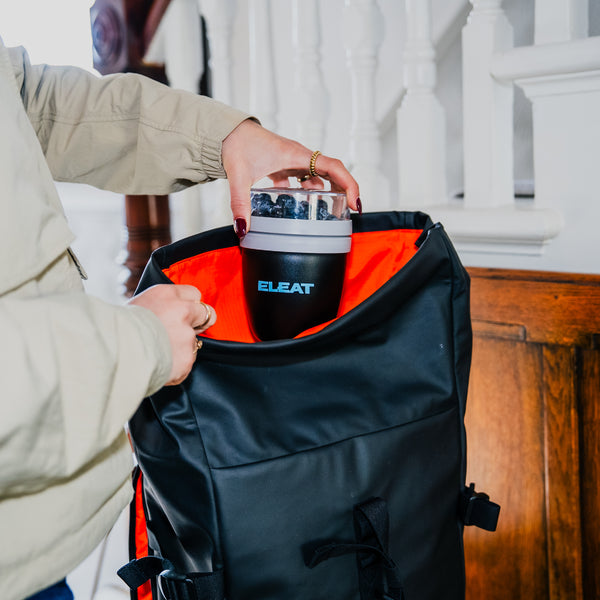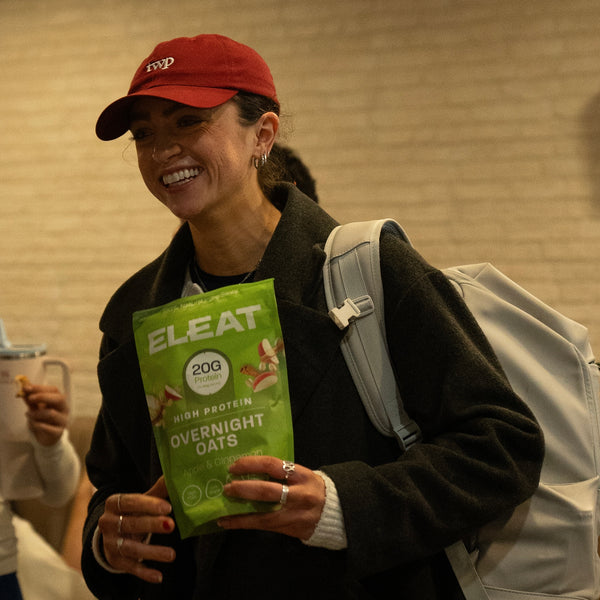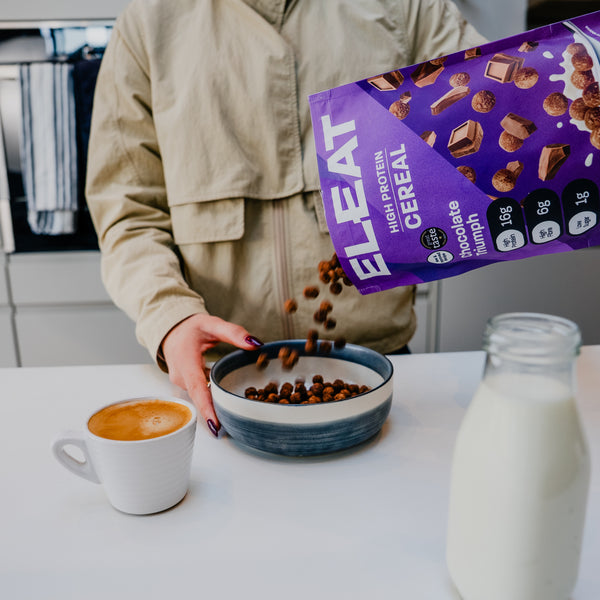In this article:
When it comes to endurance sports, whether you’re running a marathon, cycling a century, or swimming laps, one thing is clear: physical preparation is only part of the equation. Many athletes focus heavily on training and conditioning but underestimate the critical role nutrition plays in maximising performance. The truth is, what you fuel your body with before, during, and after an endurance event can make all the difference between finishing strong or hitting the wall.
Endurance sports demand sustained energy, stamina, and recovery, which means you need a strategic approach to fueling your body—not just on race day, but throughout your training. This blog will break down everything you need to know about fueling your body for peak performance, from meal timing to choosing the right nutrients, ensuring you have the energy you need to perform at your best.
Understanding the Basics of Endurance Sports Nutrition
To fuel your body effectively for endurance sports, it's crucial to understand how different nutrients support your performance. The right balance of carbohydrates, proteins, fats, and hydration can help sustain energy, improve recovery, and enhance overall performance.
By understanding the importance of each of these nutrients, you can better fuel your body for optimal endurance performance and recovery.
Carbohydrates:
Carbs are your body’s main source of fuel during endurance activities. When you engage in sustained physical activity, your body relies on stored carbohydrates (glycogen) for quick energy. There are two types of carbohydrates:
Simple Carbohydrates: These are quick-digesting sugars like those found in fruit, sports drinks, or energy gels. They provide a fast source of energy, which is ideal during long events when you need a quick energy boost.
Complex Carbohydrates: Found in foods like whole grains, oats, and starchy vegetables, complex carbs break down more slowly, providing sustained energy. Eating complex carbs before or after an event helps maintain your blood sugar levels and supports longer endurance.
A diet high in carbohydrates is essential for endurance athletes. Carbs help maintain blood sugar levels during long activities, delaying fatigue and keeping you energised throughout your workout or race.
Proteins:
Protein plays a crucial role in muscle repair and recovery. During endurance exercise, your muscles undergo wear and tear, and having adequate protein intake helps repair and rebuild tissue. Endurance athletes need sufficient protein to support muscle maintenance during prolonged exertion.
While carbs provide energy during the activity, protein helps in recovery afterwards, reducing muscle soreness and supporting growth. Incorporating protein-rich foods like lean meats, legumes, and dairy, or even adding protein shakes or high-protein overnight oats (like ELEAT), can enhance recovery and ensure your muscles rebuild properly.
Fats:
Fats are often overlooked but are a vital long-term energy source for endurance athletes. As you extend your activity beyond 90 minutes or so, your body starts tapping into fat stores for fuel. Healthy fats, such as those found in avocados, nuts, seeds, and fish, help maintain energy and reduce the likelihood of muscle breakdown during prolonged endurance efforts.
Fats also play a key role in overall health and hormone balance, so it’s important to include them in your diet to support peak performance.
Hydration:
Hydration is crucial during endurance activities. Even a small level of dehydration can lead to reduced performance, fatigue, or cramping. Water helps regulate body temperature, lubricates joints, and supports nutrient transport throughout your body.
For long-endurance events or intense exercise, you need more than just water—electrolytes like sodium, potassium, and magnesium are essential for maintaining fluid balance and muscle function. Sports drinks or electrolyte tablets are often used to replenish these minerals lost through sweat.
Proper hydration should begin before your workout, continue during your activity, and include replenishing fluids post-event. By staying hydrated and ensuring you maintain electrolyte balance, you’ll be able to sustain your energy levels and prevent the dreaded “bonk” or fatigue.
Pre-Workout Nutrition - Fuel for Endurance Sports
When to Eat:
The timing of your pre-workout meal can significantly impact your performance. Ideally, you should aim to eat 1-3 hours before your endurance activity. This gives your body time to digest and convert the food into usable energy without leaving you feeling sluggish or overly full.
Eating too close to your workout - within 30-60 minutes - can lead to discomfort, cramps, or sluggishness because your body is still working to digest the food. On the other hand, waiting too long may cause you to feel fatigued or low on energy before the activity begins. Aim for a balance that works for your body and the timing of the event.
What to Eat:
When preparing for an endurance activity, it's crucial to focus on a balance of carbohydrates, moderate protein, and low fat. Carbs are your primary energy source, while protein supports muscle maintenance and repair, and fat is kept minimal as it digests more slowly.
Carbohydrates are the star of the pre-workout meal. They’ll provide you with quick, accessible energy for sustained performance.
Moderate Protein helps keep you full without weighing you down and supports muscle repair once the activity is over.
Low Fat is ideal since fat takes longer to digest, potentially leading to discomfort or sluggishness during exercise.
Here are a few examples of pre-workout meals and snacks that will fuel your body with the right balance:
Whole grain toast with peanut butter and banana: This combo offers a mix of complex carbs, healthy fats, and protein to power your workout.
Oatmeal with fruit and a sprinkle of nuts: A great option for sustained energy, with slow-digesting oats and fruits packed with vitamins and antioxidants.
A smoothie with berries, protein powder, and oats: This is a quick and easily digestible option, packed with protein and carbs for a fast energy boost.
ELEAT Tip:
For those busy mornings when you need a high-protein, hassle-free breakfast, ELEAT high-protein overnight oats in Chocolate or Apple & Cinnamon flavours are the perfect solution. Simply mix with your preferred liquid the night before, and you’ll wake up to a balanced, nutritious breakfast that fuels your body with quality ingredients for sustained energy throughout your workout or training session. No prep required - just grab and go!
Fuelling During Endurance Activities
Carb Loading and In-Event Nutrition:
For events lasting longer than an hour, fuelling during activity is essential. As glycogen stores deplete after 60-90 minutes of sustained effort, consuming carbohydrates helps maintain energy and delay fatigue. Regular fueling during the event ensures consistent energy levels and peak performance.
What to Eat/Drink:
Sports Drinks provide easily digestible carbs and electrolytes to replenish fluids and energy.
Energy Gels or Chews are compact, fast-digesting carbs perfect for on-the-go fueling.
Energy Bars offer a mix of carbs and small protein for sustained energy.
Small Amounts of Protein such as protein shakes or nut butter can help prevent muscle breakdown during long activities.
Hydration:
Staying hydrated is crucial to avoid fatigue, cramping, and dehydration. Aim to drink every 15-20 minutes during events to replenish fluids.
Water helps regulate temperature and keeps you hydrated.
Electrolyte Beverages replenish sodium, potassium, and magnesium lost through sweat, preventing cramping and fatigue.
By fueling consistently and staying hydrated throughout your event, you’ll maximise endurance and perform at your best.
Post-Workout Recovery - Refuelling the Body
Replenishing Glycogen and Muscle Repair:
After a strenuous workout, your body needs to refuel to recover effectively. During exercise, glycogen stores are depleted, and muscle tissue experiences micro-tears. Consuming a balanced meal with both carbohydrates and protein is crucial for replenishing glycogen and kick-starting muscle recovery.
To optimise recovery, aim to eat within 30-60 minutes post-workout. This window allows your body to absorb nutrients efficiently, promoting muscle repair and replenishing energy stores to prepare you for your next training session.
What to Eat:
Your post-workout meal should combine carbs (to replenish glycogen) and protein (to repair muscle tissue). Here are some great post-workout meal ideas:
A smoothie with protein powder, banana, and spinach: A quick and easy option to replenish both carbs and protein.
Grilled chicken with sweet potatoes and steamed vegetables: A balanced meal providing lean protein and complex carbs for sustained recovery.
A rice bowl with quinoa, avocado, and chickpeas: A plant-based option rich in protein and healthy fats, with carbs to restore glycogen.
By refuelling properly after your workout, you'll speed up recovery, prevent muscle soreness, and set yourself up for continued success in your endurance training.
Conclusion
Proper fueling is just as important as the physical training that goes into preparing for endurance sports. By strategically planning your pre-workout, in-event, and post-workout nutrition, you’ll give your body the sustained energy it needs to perform at its best, recover quickly, and avoid burnout. Whether it’s fueling with carbs before an event, staying hydrated during the race, or replenishing glycogen post-exercise, each step plays a critical role in achieving peak performance.
With the right combination of nutrients, such as carbohydrates for energy, protein for recovery, healthy fats for long-term fuel, and hydration to keep your body balanced, you can maximise your endurance and take your athletic performance to the next level. Remember, nutrition is a key part of the equation - don't overlook it!
